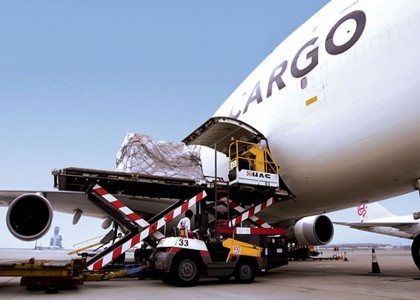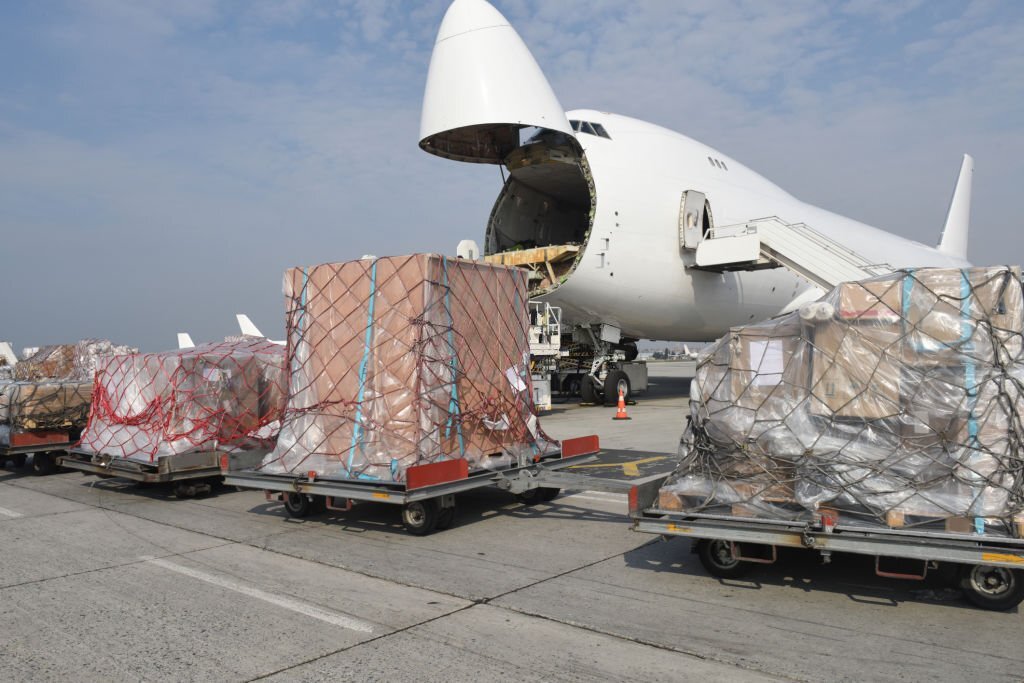Air Cargo

Why To Choose go Services?
Air cargo refers to the transportation of goods, packages, or freight by air. It involves the use of airplanes and specialized cargo aircraft to move cargo from one location to another, both domestically and internationally. Air cargo is an essential part of the global supply chain, enabling the quick and efficient transportation of goods across long distances.
Here are some key points about air cargo:
-
Speed and Efficiency: Air cargo is known for its speed and efficiency, particularly for time-sensitive and high-value shipments. Airplanes can cover long distances in relatively short periods, reducing transit times compared to other modes of transport like sea or road.
-
Global Reach: Air cargo provides global connectivity, allowing goods to be transported to almost any destination with an airport. It plays a crucial role in international trade, facilitating the movement of goods between countries.
-
Types of Air Cargo: Air cargo can encompass various types of goods, including perishable items (such as fruits, vegetables, and pharmaceuticals), express parcels, e-commerce shipments, automotive parts, industrial machinery, electronics, and more. The nature of the cargo often determines the specialized handling and storage requirements.
-
Air Freight Services: Air cargo services are typically provided by airlines and specialized air cargo carriers. These services may include freight forwarding, customs clearance, warehousing, and logistics management. Freight forwarders and logistics companies often coordinate the entire transportation process, from pickup to delivery, to ensure smooth operations.
-
Cargo Aircraft: Cargo can be transported either on dedicated cargo aircraft or in the belly holds of passenger aircraft. Dedicated cargo planes are specifically designed to carry freight, offering various configurations and cargo capacities. Passenger aircraft utilize the space below the passenger cabin for cargo transportation.
-
Air Cargo Hubs: Airports that handle a significant volume of air cargo often act as cargo hubs or logistics centers. These hubs facilitate the consolidation, sorting, and transfer of cargo between different flights, connecting various origins and destinations efficiently.
-
Security and Regulations: Air cargo undergoes strict security measures and regulatory compliance to ensure the safety of the shipments and prevent unauthorized or dangerous items from being transported. Cargo screening, documentation, and adherence to international air cargo regulations are crucial aspects of air freight operations.
-
Environmental Impact: While air cargo offers speed and efficiency, it also has a higher carbon footprint compared to other modes of transport like sea or rail. Efforts are being made to enhance fuel efficiency, explore alternative fuels, and implement sustainable practices in the air cargo industry to reduce its environmental impact.
Air cargo plays a vital role in supporting global trade, enabling businesses to transport goods quickly and reliably across long distances. It provides an essential link in the supply chain, connecting manufacturers, suppliers, retailers, and consumers worldwide.



